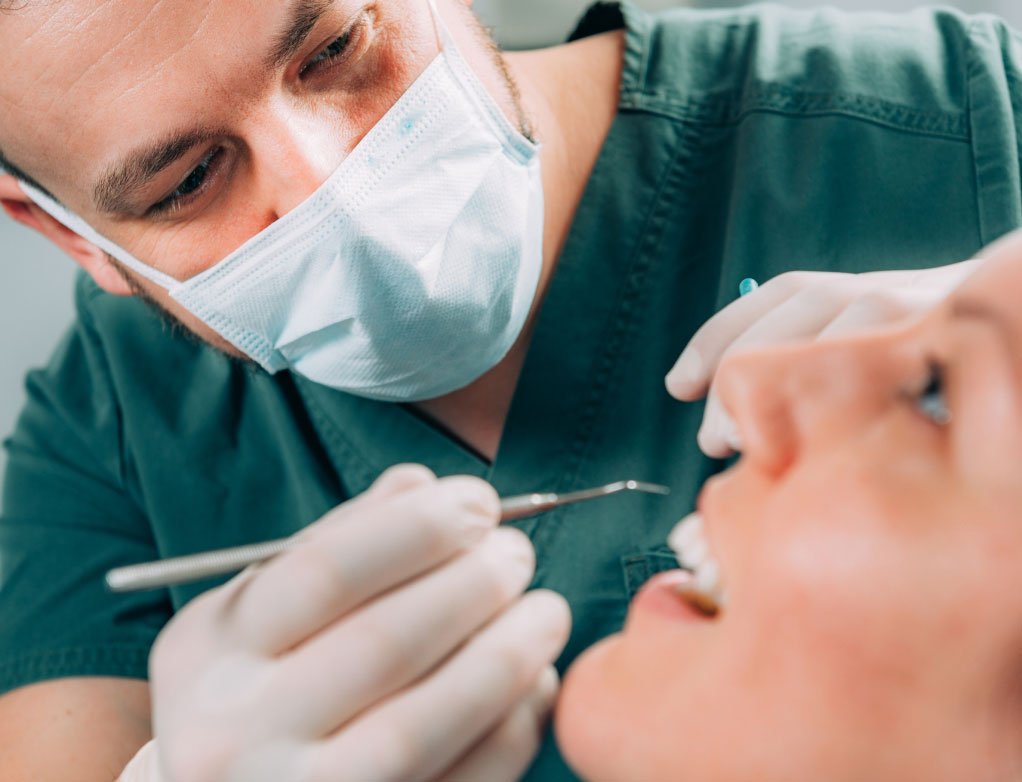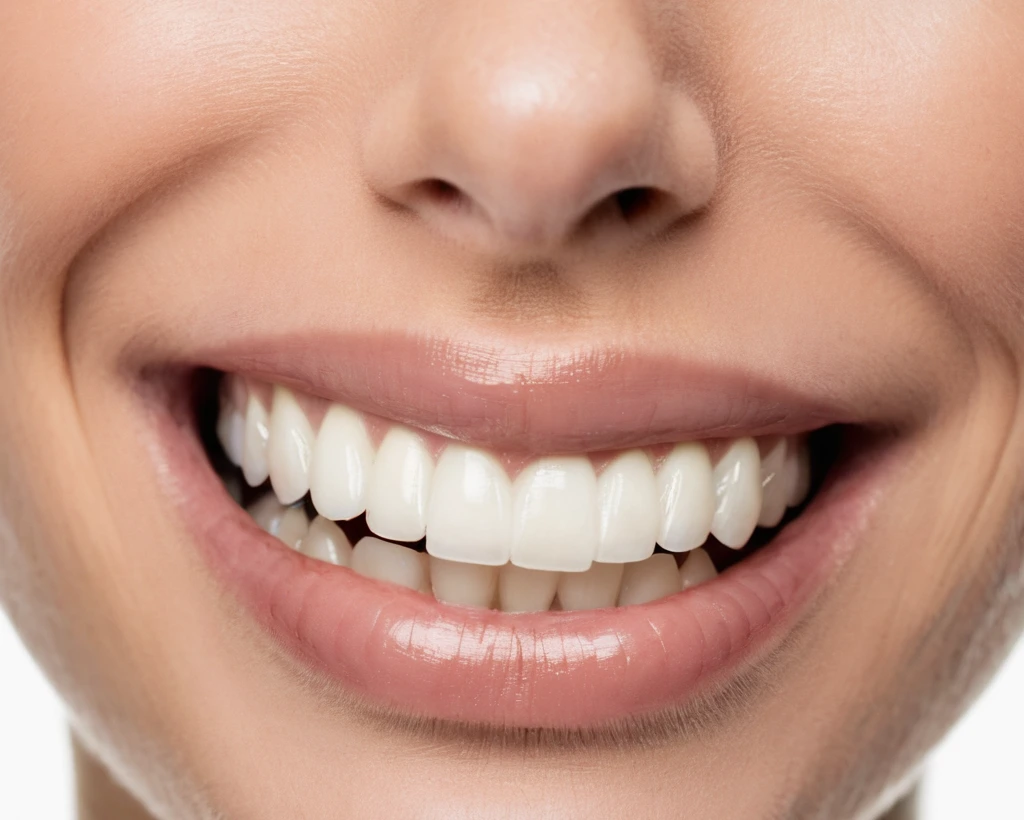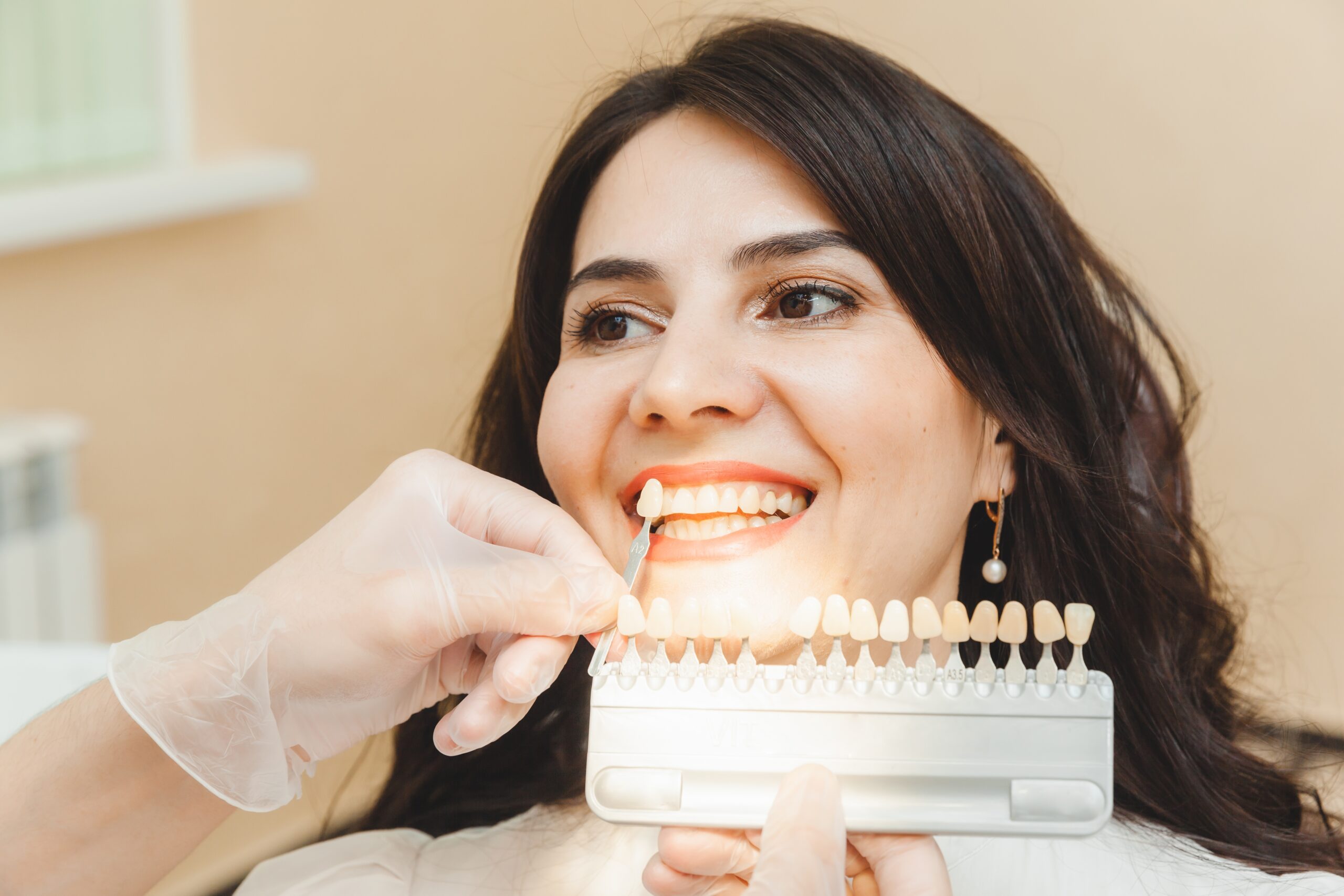Dental veneers offer a quick and minimally invasive aesthetic solution for correcting fractured, stained, misaligned, worn, uneven, or abnormally spaced teeth. This treatment involves the placement of customized laminates on the outer surface of the anterior teeth, enhancing their shape, size, alignment, and color.
Porcelain and composite veneers are two common types, each with its own advantages and drawbacks. The use of veneers can yield numerous benefits, such as improving dental aesthetics, strengthening fractured teeth, restoring normal function, boosting self-esteem, and providing a swift recovery.
Conclusions about dental veneers:
– Dental veneers offer a fast and minimally invasive aesthetic solution.
– They can enhance dental aesthetics and correct various dental issues.
– Different types of veneers exist, such as porcelain and composite.
– Veneers offer benefits like strengthening fractured teeth and boosting self-esteem.
– Remember to consult with a professional dentist to determine the most suitable type of veneers for you.
Advantages of Porcelain Veneers:
Porcelain veneers are custom-made laminates created by a dental laboratory technician and adhered to the teeth using stable adhesives. These veneers offer numerous advantages, making them a popular choice for addressing various dental issues.
– They can correct multiple dental defects, such as fractured, stained, misaligned, worn, uneven, or abnormally spaced teeth.
– Enhance the shape, size, and alignment of the teeth, achieving a more harmonious and attractive smile.
– Improve tooth color, providing superior dental aesthetics due to the optimal light transmission of the ceramic used in their fabrication. This means that porcelain veneers not only conceal imperfections but also offer a natural and radiant appearance.
– They are minimally invasive and preserve dental substance, requiring minimal removal of the natural enamel during the preparation process.
– Strengthen fractured teeth, restoring normal function and preventing further weakness or damage.
– Exhibit excellent stain resistance, maintaining a white and bright appearance over time, even with the consumption of substances like coffee, tea, or red wine.
– Biocompatible, meaning they are compatible with dental structure and do not cause adverse effects on surrounding tissues.
Despite these advantages, it is essential to note that porcelain veneers may come with a higher cost compared to other options, such as composite veneers. Additionally, some individuals may experience dental sensitivity in the first few days after the placement of porcelain veneers. However, for those seeking a durable and high-quality aesthetic solution, porcelain veneers are an excellent option to consider.
Advantages of Composite Veneers:
Composite veneers are an excellent alternative for enhancing dental appearance. These veneers are crafted directly in the dental office by the dentist using high-quality aesthetic resin.
One of the main advantages of composite veneers is their quick placement. Unlike porcelain veneers, which require multiple dental visits, composite veneers can be placed in a single visit, providing satisfactory aesthetic results in less time.
Another significant advantage is their lower cost compared to porcelain veneers, offering a more affordable aesthetic solution for those looking to enhance their smile without a substantial financial investment.
Additionally, composite veneers allow for easy changes in tooth color, shape, and position. This versatility enables highly aesthetic and personalized results tailored to each patient’s individual needs.
Disadvantages of Porcelain Veneers:
While porcelain veneers have numerous advantages, they also present some drawbacks. The primary drawback is their higher cost compared to composite veneers. Additionally, individuals may experience dental sensitivity in the initial days following placement due to enamel reduction. The laboratory fabrication process also requires multiple sessions, and once porcelain veneers are cemented in place, their color or shape cannot be altered.
Disadvantages of Composite Veneers:
Despite the advantages of composite veneers, they also have their drawbacks. These veneers are less durable than porcelain veneers and require ongoing maintenance through polishing and/or repairs. They may be more prone to staining over time, especially in individuals who smoke or consume coffee or red wine.
Composite veneers are not recommended for extensive rehabilitations or in the presence of bruxism, moderate or severe dental wear, and parafunctional habits such as nail-biting and object-chewing.
General Benefits of Dental Veneers:
In addition to the specific advantages of porcelain and composite veneers, dental veneers, in general, offer numerous benefits. These veneers provide an effective aesthetic solution for concealing a variety of dental imperfections, such as poor coloration, interdental gaps, fissures, enamel wear, and minor fractures.
One of the most notable advantages of dental veneers in Tijuana is that they are minimally invasive treatments that preserve the original structure of the teeth. Unlike other procedures, such as crowns, dental veneers require minimal enamel reduction, preserving the health and strength of the teeth.
Dental veneers also deliver natural aesthetic results. Custom-made for each patient, they achieve an appearance and tooth shape very similar to natural teeth. This allows for concealing issues like fractured, misaligned, or slightly crooked teeth, providing a more harmonious and attractive smile.




